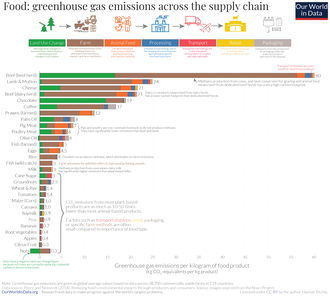Sustainable consumption
Sustainable consumption refers to the use of goods and services that meet basic needs and provide a better quality of life while minimizing the use of natural resources, toxic materials, and emissions of waste and pollutants over the lifecycle, so as not to jeopardize the needs of future generations. It is a concept deeply intertwined with sustainable development, which seeks to balance economic growth, environmental sustainability, and social equity.
Overview
Sustainable consumption aims to promote efficiency and responsible resource use in both production and consumption processes. It encourages consumers to choose products that use fewer resources and generate less waste. This concept is not only about what is consumed but also how products are produced, emphasizing the importance of reducing the environmental impact of production processes.
Principles
The principles of sustainable consumption are rooted in reducing, reusing, and recycling resources. These principles encourage individuals and businesses to:
- Reduce the amount of resources consumed by making more efficient use of them.
- Reuse products and materials to extend their lifecycle.
- Recycle materials to prevent waste and reduce the need for new raw materials.
Strategies
Several strategies can be employed to promote sustainable consumption, including:
- Eco-labeling: Providing information on the environmental impact of products to help consumers make informed choices.
- Green public procurement (GPP): Encouraging governments and organizations to purchase environmentally friendly products and services.
- Sustainable product design: Designing products that are durable, repairable, and recyclable.
- Consumer awareness campaigns: Educating the public about the benefits of sustainable consumption and how to practice it.
Challenges
Despite its benefits, sustainable consumption faces several challenges, including:
- Consumer behavior: Changing consumer habits is difficult, and many people are reluctant to switch to more sustainable options due to convenience, cost, or lack of awareness.
- Economic barriers: Sustainable products can be more expensive due to the higher costs of eco-friendly materials and production processes.
- Lack of information: Consumers often lack accurate and comprehensive information about the environmental impact of products.
Impact
Adopting sustainable consumption practices can have a significant positive impact on the environment by reducing pollution, conserving natural resources, and mitigating climate change. It also has social and economic benefits, such as promoting social equity and creating new green jobs.
See also
| This article is a stub. You can help WikiMD by registering to expand it. |
Transform your life with W8MD's budget GLP-1 injections from $125.
W8MD offers a medical weight loss program to lose weight in Philadelphia. Our physician-supervised medical weight loss provides:
- Most insurances accepted or discounted self-pay rates. We will obtain insurance prior authorizations if needed.
- Generic GLP1 weight loss injections from $125 for the starting dose.
- Also offer prescription weight loss medications including Phentermine, Qsymia, Diethylpropion, Contrave etc.
NYC weight loss doctor appointments
Start your NYC weight loss journey today at our NYC medical weight loss and Philadelphia medical weight loss clinics.
- Call 718-946-5500 to lose weight in NYC or for medical weight loss in Philadelphia 215-676-2334.
- Tags:NYC medical weight loss, Philadelphia lose weight Zepbound NYC, Budget GLP1 weight loss injections, Wegovy Philadelphia, Wegovy NYC, Philadelphia medical weight loss, Brookly weight loss and Wegovy NYC
|
WikiMD's Wellness Encyclopedia |
| Let Food Be Thy Medicine Medicine Thy Food - Hippocrates |
Medical Disclaimer: WikiMD is not a substitute for professional medical advice. The information on WikiMD is provided as an information resource only, may be incorrect, outdated or misleading, and is not to be used or relied on for any diagnostic or treatment purposes. Please consult your health care provider before making any healthcare decisions or for guidance about a specific medical condition. WikiMD expressly disclaims responsibility, and shall have no liability, for any damages, loss, injury, or liability whatsoever suffered as a result of your reliance on the information contained in this site. By visiting this site you agree to the foregoing terms and conditions, which may from time to time be changed or supplemented by WikiMD. If you do not agree to the foregoing terms and conditions, you should not enter or use this site. See full disclaimer.
Credits:Most images are courtesy of Wikimedia commons, and templates, categories Wikipedia, licensed under CC BY SA or similar.
Contributors: Prab R. Tumpati, MD






